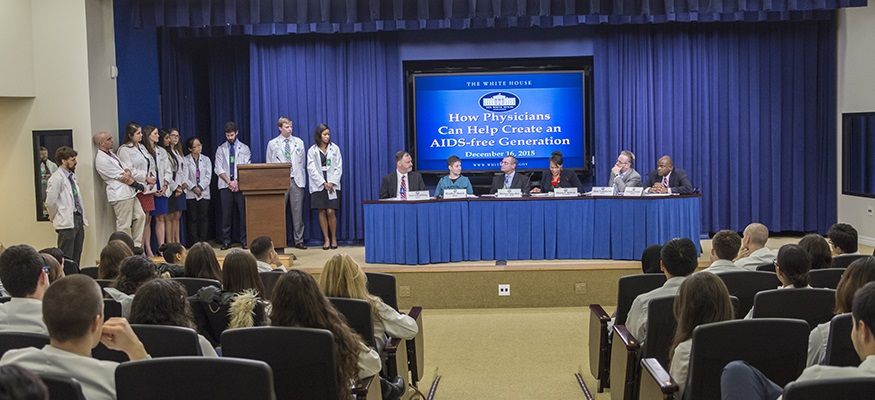
Individual health is increasingly influenced by a wide range of community and population determinants of health. Today, therefore, the scope of practice for clinicians must encompass both individual and community health by drawing on principles of public health, population health, health policy, health systems, and leadership in order to enhance the quality of care delivered and effectively promote the health of our patients and communities.
To prepare future clinicians to assume their role in 21st century health systems, George Washington University School of Medicine & Health Sciences (GW SMHS) established its Clinical Public Health curriculum in 2014 to integrate public health and population health throughout students’ four-year medical education:
- Social determinants of health
- Community and population health
- Health system organization and management
- Health policy
- Prevention and health promotion
- Evidence-based practice
- Community service and engagement
- Interprofessional teamwork
- Clinician advocacy
- Leadership skills
Upon graduation, GW-trained physicians will not only be excellent clinicians for individual patients’ health needs, but they will also be able to identify, understand, and address community health issues both within and beyond the walls of the clinic.
Please contact Ms. Kat Binney at kbinney86 [at] gwu [dot] edu (kbinney86[at]gwu[dot]edu) to learn more about Clinical Public Health and Population Health Practice programs.
